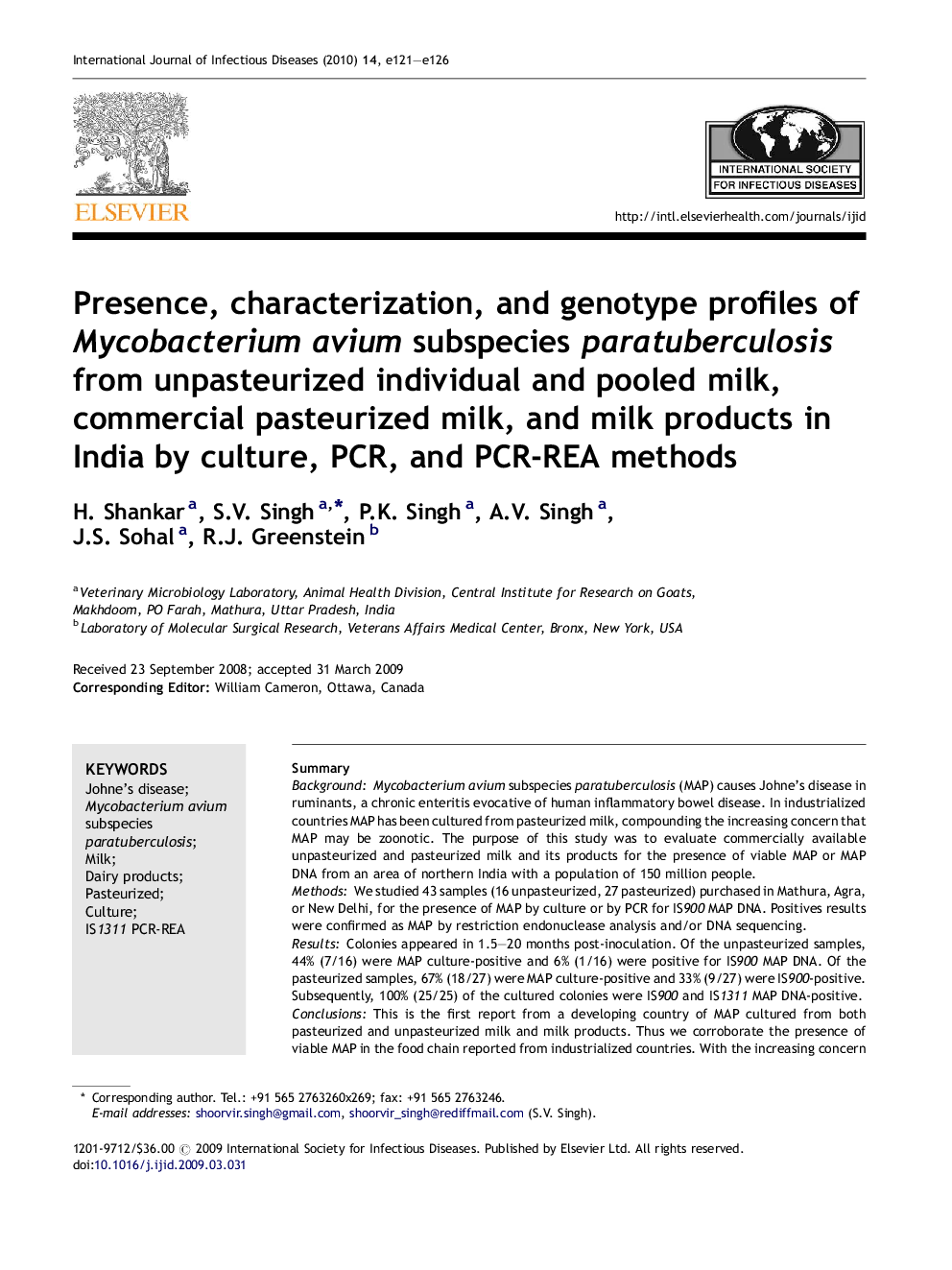| Article ID | Journal | Published Year | Pages | File Type |
|---|---|---|---|---|
| 3364312 | International Journal of Infectious Diseases | 2010 | 6 Pages |
SummaryBackgroundMycobacterium avium subspecies paratuberculosis (MAP) causes Johne's disease in ruminants, a chronic enteritis evocative of human inflammatory bowel disease. In industrialized countries MAP has been cultured from pasteurized milk, compounding the increasing concern that MAP may be zoonotic. The purpose of this study was to evaluate commercially available unpasteurized and pasteurized milk and its products for the presence of viable MAP or MAP DNA from an area of northern India with a population of 150 million people.MethodsWe studied 43 samples (16 unpasteurized, 27 pasteurized) purchased in Mathura, Agra, or New Delhi, for the presence of MAP by culture or by PCR for IS900 MAP DNA. Positives results were confirmed as MAP by restriction endonuclease analysis and/or DNA sequencing.ResultsColonies appeared in 1.5–20 months post-inoculation. Of the unpasteurized samples, 44% (7/16) were MAP culture-positive and 6% (1/16) were positive for IS900 MAP DNA. Of the pasteurized samples, 67% (18/27) were MAP culture-positive and 33% (9/27) were IS900-positive. Subsequently, 100% (25/25) of the cultured colonies were IS900 and IS1311 MAP DNA-positive.ConclusionsThis is the first report from a developing country of MAP cultured from both pasteurized and unpasteurized milk and milk products. Thus we corroborate the presence of viable MAP in the food chain reported from industrialized countries. With the increasing concern that MAP may be zoonotic, these findings have major implications for healthcare in India. The decreased sensitivity in detecting MAP DNA by PCR directly from milk should be ascribed to our employing only one set of PCR primers.
